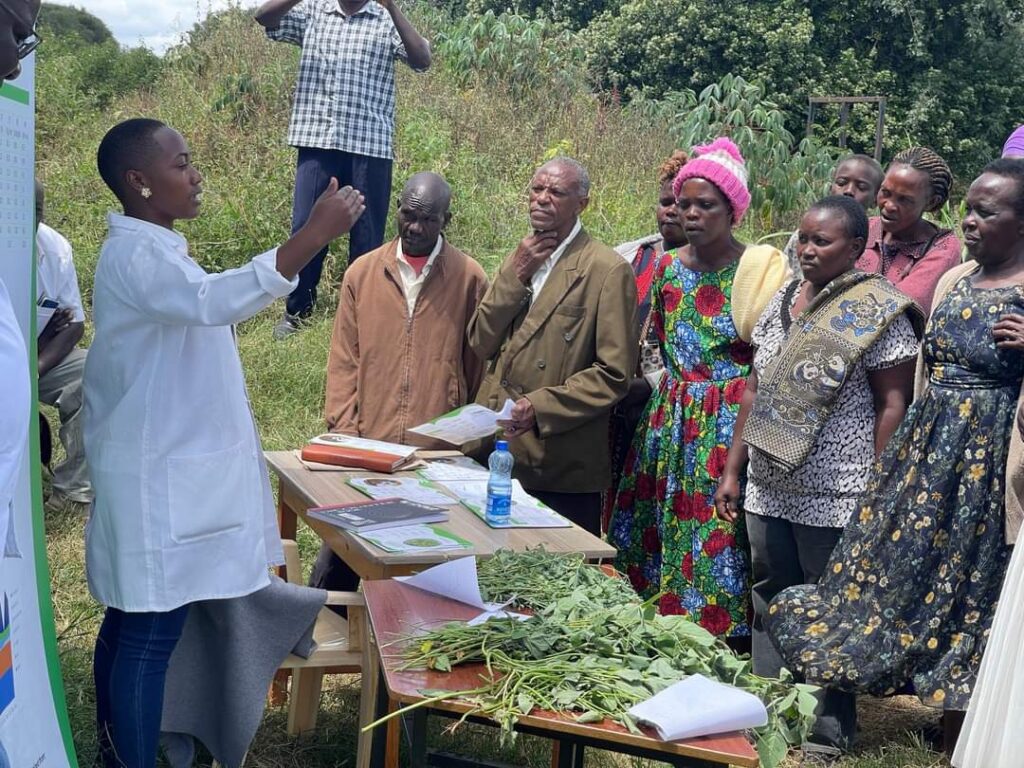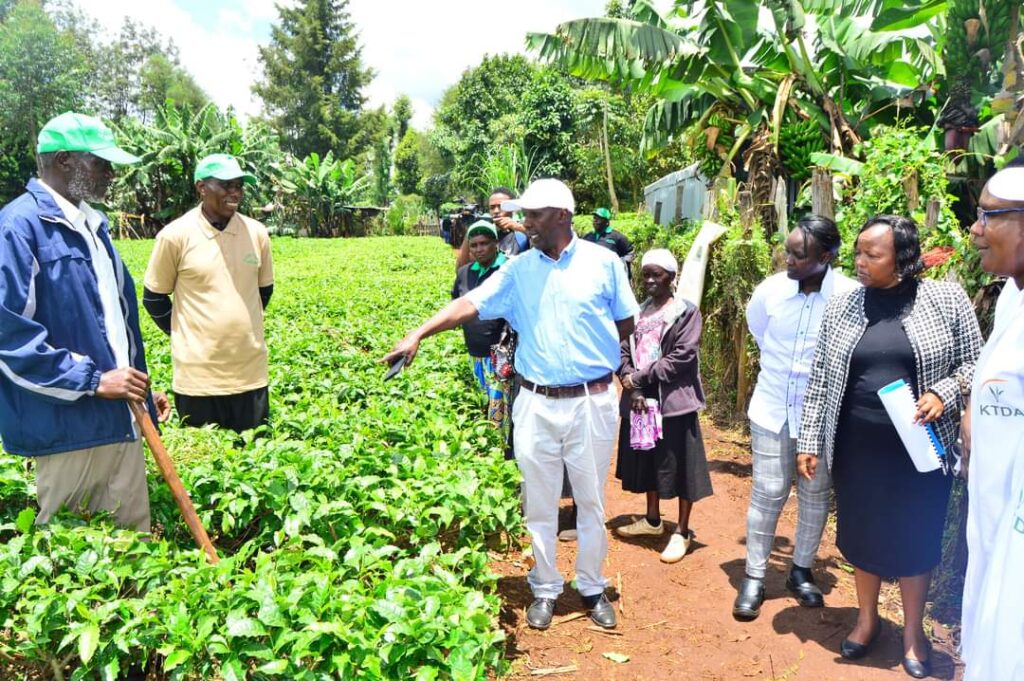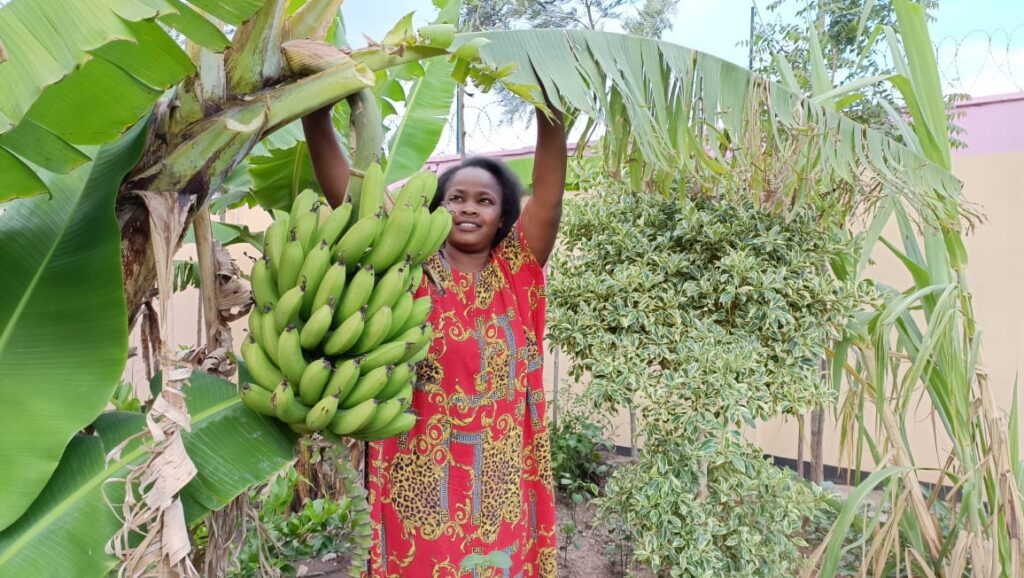By Christine Ochogo | christawine@yahoo.com
Small-scale farmers in Africa contribute up to 80 per cent of the food produced and consumed in the continent, despite myriad constraints. The mostly rural smallholder farmers survive on less than 2Ha, with agriculture as their source of livelihood. Capital assets constraints bar them from maximising agricultural productivity, food security and income.
Baliraine Hakim, the Eastern and Southern Africa Small-Scale Farmers Forum (ESAFF) says the farmers significantly contribute to the rural economy and conservation of natural resources, and are therefore critical players in poverty eradication efforts.

“Family farms are the backbone of rural economies. More than 2.5 billion people depend on family farms for livelihoods globally,” he said, adding: “In the sub-Saharan Africa, agriculture contributes 23 per cent to regional Gross Domestic Product and the small-scale farmers create employment for over 70 per cent of the population, majority of them women.”
Mr Hakim spoke during a virtual gender and climate change café organised by the Media for Environment, Science, Health and Agriculture (MESHA) in conjunction with CGIAR. Mr Hakim said Africa was the worst affected by climate change despite being responsible for meagre 4 per cent Green House Gas (GHG) emissions globally. He reiterated that the most hit was the agriculture sector, the backbone of a majority African countries’ economies.
“We propose that a polluter pay principle applies. Culprits need to pay more. Many small-scale farmers in Africa are already practicing climate resilient agriculture, including agro-ecology, reducing chemical input and building strong connection to local market.

He highlighted eligibility and financial constraints as barriers to farmers’ efforts to engage in international fora where decisions are made. The farmers need to participate in global climate negotiations, such as COP29, he said.
“Many policies have failed to work because farmers were not involved. Spaces like COPs are placed at governmental levels, largely ignoring farmers’ voices though they are the most affected and the implementors of the decisions made in their absence,” Mr Hakim stated.
A World Resource Forum 2023 study shows only a small portion is allocated small-scale farmer and sustainable Agriculture. “11 per cent of public climate finance was spent on Agriculture, forestry and fishing since 2012- an average of USD 7 Billion a year,” read part of the report.
Just 2 per cent of international public climate finance – $2 billion – was directed to small-scale family farmers and rural communities in 2021. This amounts to roughly 0.3 per cent of total international climate finance from both public and private sources.
“Climate change is hitting harvests and driving food prices up globally. It has helped push 122 million people into hunger since 2019. We need to create more sustainable and resilient food systems that can feed people in a changing climate, but we can’t do this without small scale farmers,” he added.
Jacklin Makoha, National Gender and Climate Change focal point for Kenya, department of gender and affirmative action, mentioned a wide range of gender and climate change vulnerability indices that affects production and economic empowerment.

She said a gender and climate change vulnerability hotspot mapping concurrently done in three countries; Kenya, Uganda and Botswana helped in decision support.
The Kenya findings of this report indicated that in crop production, men control large firms that have cash crops for commercial purposes, while women control small farms for food crops. “Women struggle for resources like seed and technological training and this affects their production leading to food insecurity,” added Makoha.

In terms of labour, she explained that due to climate change impacts, some men migrate from their villages to look for work, leaving women to oversee the large farms. This adds to women’s workload, this on top of other household work chores.
Global hunger is on the rise, hence Food and Agriculture Organisation report on ‘The State of Food Security and Nutrition in the World 2024 (SOFI)’ aims at financing to end hunger, food insecurity and malnutrition in all its forms.
This comes as the indicators of progress towards global nutrition targets similarly show that the world is not on track to eliminate all forms of malnutrition (Sustainable Development Goal Target 2.2). Billions of people still lack access to nutritious, safe and sufficient food.
However, the SOFI 2024 report provides time-critical recommendations for more efficient use of innovative financing tools, and for reforms to the food security and nutrition financing architecture.
It further recommends agreement on how food security and nutrition financing is defined, along with methods for tracking, measurement and implementation, increasing the financing flows needed to end hunger, food insecurity and all forms of malnutrition, and to ensure access to healthy diets for all.
The COP29 in Baku between November 11 and 22 aims to deliver old promises and set the framework for a new deal on finance. It also targets to ensure affordable climate finance available, and accessible to developing countries.
At the annual climate COP, delegates from nearly every country on Earth negotiate global goals for tackling climate change, present their individual countries’ plans through negotiating blocs for contributing to those goals, and report on their progress. Each COP agrees a statement or a binding agreement which is publicly released at the end of the conference.









